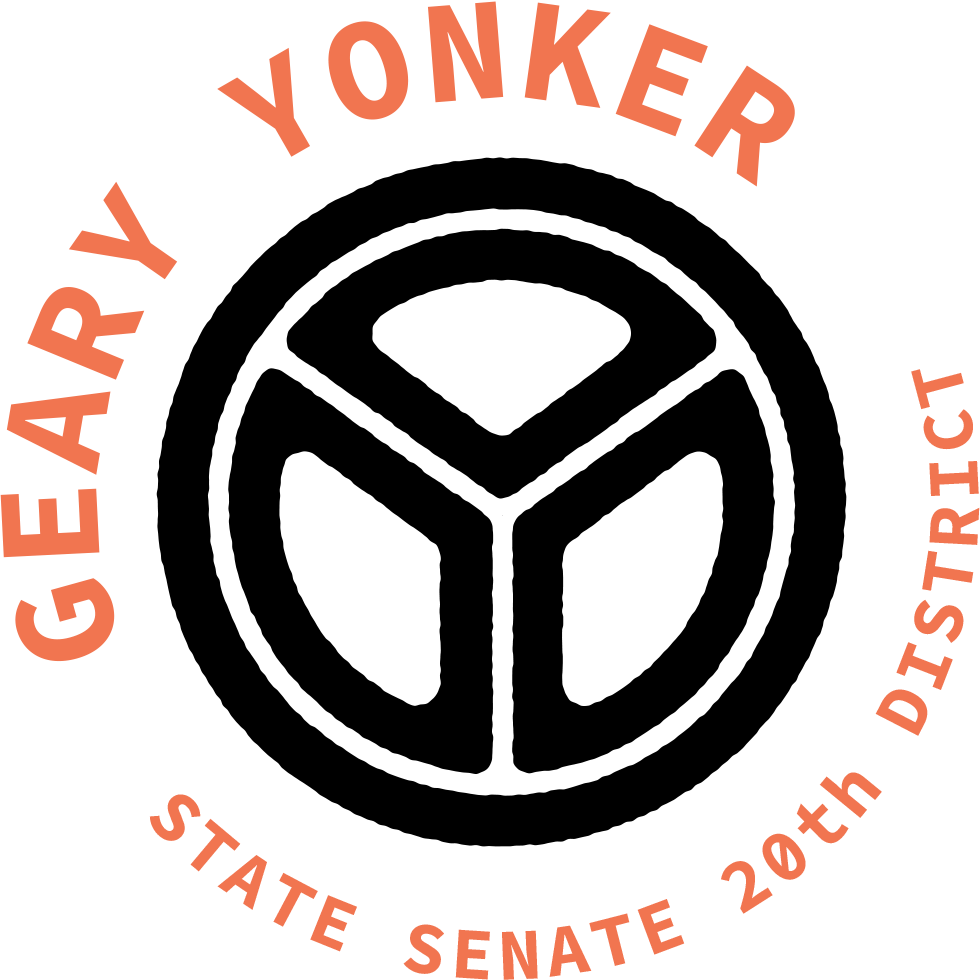Rising property taxes are a housing affordability issue.
Access to affordable housing is an urgent issue here in the City of Chicago and across the country. Incomes have not risen at the same pace as housing costs. There has been a slowdown in new housing construction, especially for more affordable housing units, and the Covid pandemic dramatically increased the demand for housing. According to the Pew Research Center 46% of all US renters are spending 30% or more of their entire income on paying rent and 23% are paying 50% or more.
A beautiful ofrenda I passed on Mozart Ave. in Logan Square.
The State of Illinois needs to do much more in creating more affordable housing around the state, including new funds for cities to build more 100% affordable housing, and for independent property owners to rehab and bring online housing units that have been sitting dormant. I believe we can build our way out of this problem if we make it a priority, but I also think we need to look at how dramatic increases in property taxes affect the housing crisis.
Over the past ten years the total amount of property taxes levied by the City of Chicago has doubled from $875 million in 2014 to $1.75 billion in 2023.
A disproportionate percentage of that increase has been on the backs of residential property owners and not on commercial property owners. This is a result of commercial property owners' having a greater understanding of the tax appeal process, a process that also benefits many elected officials here in Illinois that work as tax appeal attorneys. This includes the recently indicted Chicago Alderman Ed Burke whose clients included a former President of the United States that has been indicted a few times too.
Residential property tax increases not only not only drive up rents, they also drive many longtime residents out of the homes that they have been living in for decades. These dramatic increases especially affect seniors on fixed incomes and other longtime residents of gentrifying neighborhoods. But like so many other problems in our society we point fingers at each other rather than at the real culprits of these displacing tax increases.
Sunset on Talman Ave in Avondale.
We have created this false narrative that property tax increases are tied to new properties that are built in our neighborhoods.
We blame our tax bill increasing on that new house down the block, when in reality our property taxes rise because government agencies decide to raise our taxes. We turn on each other, we place blame on “the other” rather than placing the blame on where it ultimately deserves to sit, on the government agencies that decide to raise our taxes. It’s not the fault of a recent immigrant nor is it the fault of a person that just moved into that new building down the block. It's very similar to how we are told to blame rising consumer prices on rising wages, when in reality prices increase because companies decided to pass the burden on to consumers rather than onto shareholders. ‘
Every year Cook County Treasurer Maria Pappa’s Office releases this comprehensive but readable report that walks taxpayers through that year’s tax bill. This year’s report states that there are 940 taxing agencies in Cook County, 676 of which decided to raise our taxes this year. Again, it’s not your new neighbor or that new building in your neighborhood that raised your taxes. Your taxes were raised by these 940 taxing agencies.
Rising property taxes increase rents and displace longtime residents on fixed incomes.
Let’s stop pointing fingers at each other and point them at the real culprits.
Geary



